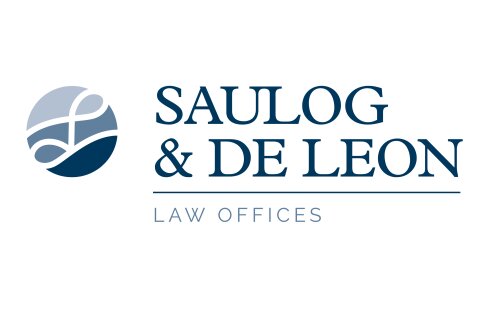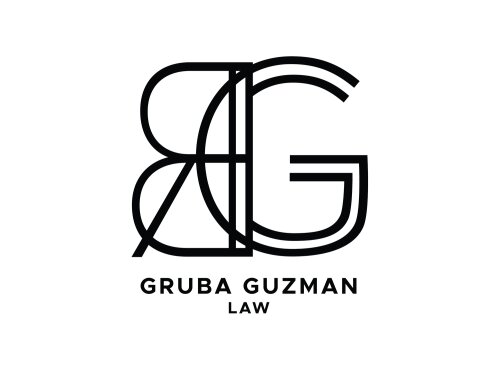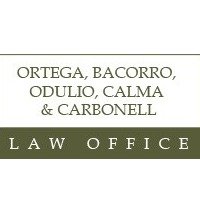Best Mining Law Lawyers in Makati City
Share your needs with us, get contacted by law firms.
Free. Takes 2 min.
List of the best lawyers in Makati City, Philippines
About Mining Law in Makati City, Philippines
Mining Law in the Philippines refers to the system of legal rules and regulations that govern the exploration, development, utilization, and conservation of mineral resources within the country. While Makati City itself is highly urbanized and not a mining area, it serves as a major business hub where many mining companies, legal consultants, government agencies, and financial institutions have their main offices. This makes Makati City central to the legal, business, and regulatory aspects of mining activities conducted throughout the Philippines.
The primary legislation covering mining in the country is Republic Act No. 7942, commonly known as the Philippine Mining Act of 1995. This law, along with related rules issued by the Department of Environment and Natural Resources (DENR) and other agencies, establishes the terms for securing mining rights, compliance, taxation, environmental protection, and responsibilities of mining companies and individuals. Law firms and practitioners in Makati City routinely handle mining-related legal matters such as permits, environmental compliance, mergers and acquisitions, indigenous peoples' rights, and dispute resolution.
Why You May Need a Lawyer
Mining Law can be complex, and individuals or corporate entities may require legal assistance for various reasons such as:
- Applying for mining exploration permits or mineral agreements
- Assessing and negotiating joint ventures and investment deals in mining
- Ensuring compliance with environmental and safety regulations
- Addressing land rights issues, including ancestral domains and indigenous peoples' rights
- Handling disputes with other mining rights holders, government agencies, or local communities
- Managing labor, tax, and financial aspects specific to mining operations
- Facilitating due diligence for mergers, acquisitions, and financing in mining projects
- Dealing with closure, rehabilitation, and environmental remediation of mine sites
- Defending against administrative penalties or litigation related to mining and environmental law
Legal professionals in Makati City are well equipped to provide guidance, ensure compliance with the relevant laws, facilitate business transactions, and protect the legal interests of their clients in the mining industry.
Local Laws Overview
For Mining Law matters in Makati City, the most significant laws and regulations include:
- Republic Act No. 7942 or the Philippine Mining Act of 1995, which sets out the regime for mineral resource development
- DENR Administrative Orders, especially those related to mining permits, environmental compliance, and social development requirements
- National and local taxation rules governing mining revenues and royalties
- Republic Act No. 8371 or the Indigenous Peoples Rights Act (IPRA), relating to the requirement to obtain Free and Prior Informed Consent (FPIC) from indigenous communities
- Environmental laws such as the Philippine Environmental Impact Statement System
- Occupational health and safety laws for mine workers
- Regulations involving community relations and corporate social responsibility for mining companies
While Makati City does not host mining sites due to its urban character, most business transactions, legal documentation, and regulatory compliance processes for mining companies occur in Makati City due to the presence of numerous law firms, financial institutions, and government offices there.
Frequently Asked Questions
What is the primary law governing mining in the Philippines?
The Philippine Mining Act of 1995 (Republic Act No. 7942) is the main law that governs mineral exploration, development, utilization, and conservation nationwide.
Is it possible to obtain a mining permit while operating from an office in Makati City?
Yes, many mining companies and individuals have their principal offices in Makati City. Applications for mining permits can be processed through the DENR and its attached agencies, many of which have central offices or representatives in or near Makati.
What types of mining permits or agreements are available in the Philippines?
The main types are Exploration Permit, Mineral Production Sharing Agreement (MPSA), Financial or Technical Assistance Agreement (FTAA), and Small-Scale Mining Permit. Each permit/agreement has its own requirements and coverage.
Do mining companies need to obtain consent from local or indigenous communities?
Yes. If mining operations will affect ancestral lands or indigenous peoples, companies must secure Free and Prior Informed Consent (FPIC) from the affected communities as required under the Indigenous Peoples Rights Act (IPRA).
What environmental permits are necessary for mining operations?
Mining operations typically require an Environmental Compliance Certificate (ECC) issued by the DENR and adherence to environmental impact assessment requirements.
Are mining revenues subject to local or national taxes?
Yes. Mining companies pay national taxes, royalties, and may also be liable for local business taxes depending on the jurisdiction of their headquarters or operations.
What happens if there is a legal dispute over mining rights?
Disputes may be addressed through administrative hearings before the Mines and Geosciences Bureau or via court proceedings. Legal assistance is highly recommended to navigate these disputes.
Can foreign companies participate in mining in the Philippines?
Foreign companies can invest or hold interests in mining projects, typically through Financial or Technical Assistance Agreements or joint ventures with local firms, subject to certain restrictions concerning land and ownership.
Are there requirements for mine site rehabilitation in the Philippines?
Yes. Mining companies are obligated by law to rehabilitate mine sites as part of their contracts and prior to the closure of any mining operation.
Where can I seek assistance if I want to invest in mining but am based in Makati?
You can consult law firms with mining law expertise in Makati City, and coordinate with relevant government offices such as DENR or the Mines and Geosciences Bureau for guidance on legal and regulatory requirements.
Additional Resources
For further information and guidance on Mining Law in Makati City and the Philippines, consider these resources and agencies:
- Department of Environment and Natural Resources (DENR) - Mines and Geosciences Bureau (MGB)
- Securities and Exchange Commission (SEC) for company incorporation and compliance
- National Commission on Indigenous Peoples (NCIP) for matters related to ancestral lands
- Philippine Mining and Exploration Association (PMEA) for industry-specific advocacy
- Environmental Legal Assistance Center and similar non-governmental organizations for community concerns
- Law firms in Makati City specializing in Mining, Environmental, and Corporate Law
- Bureau of Internal Revenue (BIR) for tax-related regulations
- Makati City Business Permits and Licensing Office for local business compliance
Next Steps
If you believe you need legal assistance with a mining-related concern in or from Makati City, Philippines, consider the following steps:
- Identify the specific nature of your mining law issue, such as permitting, compliance, contract negotiation, or dispute resolution
- Gather all relevant documents including corporate documents, permits, contracts, and correspondence
- Contact and consult a reputable law firm or legal practitioner in Makati City that specializes in Mining Law
- Prepare questions in advance regarding the legal process, timelines, fees, and possible outcomes
- Coordinate with necessary government agencies for the most recent legal requirements and procedures
- Follow your lawyer's advice to protect your interests, achieve compliance, or pursue your business goals in the mining sector
Seeking advice from an experienced mining law lawyer in Makati City can provide you with the guidance needed to navigate the complexities of Mining Law and achieve your objectives effectively.
Lawzana helps you find the best lawyers and law firms in Makati City through a curated and pre-screened list of qualified legal professionals. Our platform offers rankings and detailed profiles of attorneys and law firms, allowing you to compare based on practice areas, including Mining Law, experience, and client feedback.
Each profile includes a description of the firm's areas of practice, client reviews, team members and partners, year of establishment, spoken languages, office locations, contact information, social media presence, and any published articles or resources. Most firms on our platform speak English and are experienced in both local and international legal matters.
Get a quote from top-rated law firms in Makati City, Philippines — quickly, securely, and without unnecessary hassle.
Disclaimer:
The information provided on this page is for general informational purposes only and does not constitute legal advice. While we strive to ensure the accuracy and relevance of the content, legal information may change over time, and interpretations of the law can vary. You should always consult with a qualified legal professional for advice specific to your situation.
We disclaim all liability for actions taken or not taken based on the content of this page. If you believe any information is incorrect or outdated, please contact us, and we will review and update it where appropriate.
















